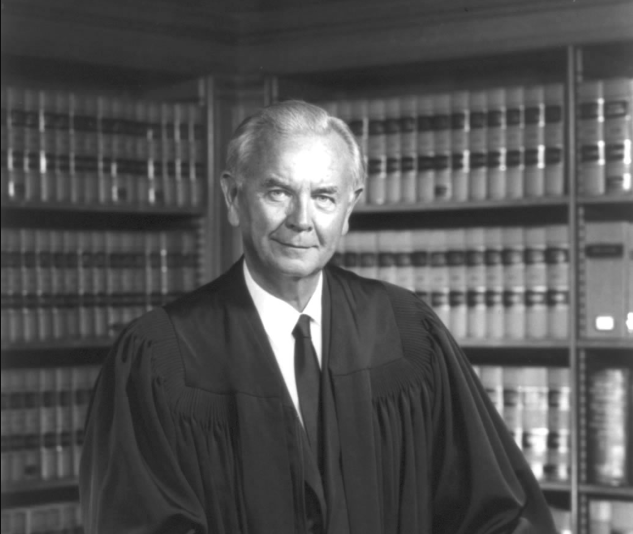US Supreme Court Reversed Some Precedents in Citizens United But Not Those Involving Disclosure

The ruling by the U.S. Supreme Court in Citizens United v. Federal Election Commission (2010) showed that the Court is not always bound by stare decisis, or the doctrine of precedent, especially when it involves campaign finance law.
Citizens United, the most consequential campaign finance case of the 21st century, notably overturned Austin v. Michigan Chamber of Commerce (1990).
In so doing, it also reversed a key part of McConnell v. Federal Election Commission (2003) and invalidated a 63-year-old law that originally banned corporations and unions from spending money in elections independently of parties and candidates.
Both Austin and McConnell upheld the 1947 ban on independent expenditures by corporations and unions while Citizens United allowed such spending.
In reaching its monumental ruling, the Supreme Court in Citizens United diverged from the common law tradition of following earlier judicial decisions.
Often overlooked in discussions about the impact of Citizens United is the fact that the majority overturned a two-decades-long precedent established in its 1990 Austin ruling.
In Austin, the Supreme Court affirmed a Michigan law that banned nonprofit corporations from using corporate funds to spend independently in State elections.
By jettisoning Austin, the majority then had to go further and scuttle a second ruling based on it.
As Justice Anthony Kennedy wrote in his Citizens United majority opinion “In this case we are asked to consider Austin, and in effect McConnell.”
In McConnell, the High Court cited the Austin case in upholding a provision in the 2002 Bipartisan Campaign Reform Act (BCRA) that prohibited corporations and unions from disseminating issue and electioneering communications in federal elections.
By abandoning the Austin ruling in 2010, the Supreme Court had no choice but to strike down the similar ban on independent spending in McConnell.
The ruling reverberated further by nullifying the 1947 law that first banned corporate and union independent election spending. In that year, Congress passed the Labor Relations Management Act, which for the first time forbade corporate or union treasury funds from being used for independent expenditures.
For decades afterward, the question of whether the 1947 ban was constitutional never made it before the Supreme Court.
It was not until its landmark opinion in Buckley v. Valeo (1976) that the Court would deal at all with the issue of election spending by corporations and unions. The Court upheld the 1971 Federal Election Campaign Act’s ban on direct contributions to candidates and parties by corporations and unions. It still did not address the issue of independent spending by these entities.
The Court’s silence on the issue was deafening, made all the more so in a case heard two years later.
In First National Bank of Boston v. Bellotti (1978), the Supreme Court did bless unlimited corporate independent spending on ballot referenda by striking down the Massachusetts’ law that barred such spending.
Bellotti contained a clear warning that states should not try to restrict speech based on a speaker’s identity.
"If the speakers here were not corporations, no one would suggest that the State could silence their proposed speech. It is the type of speech indispensable to decision-making in a democracy, and this is no less true because the speech comes from a corporation rather than an individual. The inherent worth of the speech in terms of its capacity for informing the public does not depend upon the identity of its source, whether corporation, association, union, or individual.”
But again, the Court failed to address the ban on corporate independent spending in support of candidates.
In Austin, the Court finally confronted the issue head-on. Yet, it ignored its own warning in Bellotti without striking down the earlier case. Austin became the only Supreme Court ruling in history to directly bar independent spending in elections. It thus became an easy target for reversal in Citizens United.
Perhaps the words of Justice Kennedy in his Citizens United majority opinion summed up best the constitutional quandary facing the judges in 2010: “The Court is thus confronted with conflicted lines of precedent: a pre-Austin line that forbids restrictions on political speech based on the speakers corporate identity and a post-Austin line that permits them.”
Under current precedent set by Citizens United, independent spending by corporations and unions is allowed and has facilitated rapid growth by independent spenders, including so-called Dark Money groups that fail to disclose their contributions.
In its latest rulings, the Court has firmly established that the First Amendment protects the political speech rights of corporations and unions as well as individuals.
Even as Citizens United rolled back the Austin precedent to permit unlimited corporate and union independent spending, the Court stood firm in a key area of campaign finance law by strongly upholding the need for disclosure.
New Jersey hopefully will soon benefit from the Supreme Court’s commitment to this principal.
There is a need in the state for legislation that requires disclosure by independent groups that have been spending significant dollars on electioneering communications. Hopefully, once things return to normal, the Legislature will address this need and require disclosure by independent groups participating in New Jersey elections.
By doing so, the Legislature will bring back a semblance of balance to an electoral system that has become increasingly dominated by outside groups rather than parties and the candidates themselves. While campaign finance law continues to be unsettled, with precedent likely to be at times reversed, support for disclosure, regardless of the makeup of the Supreme Court, is likely to be sustained.
Jeff Brindle is the Executive Director of the New Jersey Election Law Enforcement Commission.
The opinions presented here are his own and not necessarily those of the Commission.





